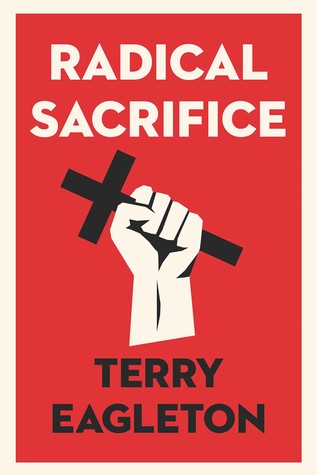We need to be free from gross inequalities and have a responsibility to change this through compassion, justice and sacrifice.
COMMENT
The coronavirus pandemic is an acid test that has revealed how unfree we still are, despite recognisable progress. Freedom can be defined in a threefold manner. Freedom is always freedom from, freedom for, and freedom amid.
Millions of South Africans are still trapped in poverty. In his book Poverty in South Africa: Past and Present, historian Colin Bundy draws on the Copenhagen Statement and describes poverty as having “various manifestations, including lack of income and productive resources to ensure sustainable livelihoods; hunger and malnutrition; ill-health; limited or lack of access to education and other basic services; increased morbidity and mortality from illness; homelessness and inadequate housing; unsafe environments and social discrimination and exclusion”.
About 29% of South Africans are still trapped in unemployment. This number is growing because of Covid-19. Unemployment causes problems on various levels. Although work does not determine our worth, being without work, income and the ability to care for myself, my dear ones and broader society, does affect people’s sense of dignity and value. Unemployment intensifies poverty.
All of us are still trapped in inequality. South Africa remains a country with the biggest gap between rich and poor. It is interesting and encouraging to note how many privileged South Africans are highly disturbed and moved by the suffering of fellow citizens who are homeless and hungry during this crisis, and who cannot practise social distancing because they are cramped into overcrowded houses and physical surroundings. The pain that these privileged South Africans feel amid the immense pain of fellow South Africans gives hope in these desperate days. Poverty is intensified if it exists in proximity to abundance.
It is clear that, although there is progress that we can tabulate, there are still too many people trapped and enslaved in poverty, unemployment and inequality for us to give ourselves a pass grade.
The second dimension of freedom deals with the responsibility associated with it. Freedom is both freedom from enslavement and freedom to eradicate enslavement. True freedom implies that we take up the responsibility to overcome poverty, unemployment and inequality. We are free so that poverty, unemployment and inequality will be no more.
The South African agricultural economist and theologian, Klaus Nürnberger, decades ago identified three sets of practices we need to follow to overcome poverty, unemployment and inequality. These are practices of compassion, justice and sacrifice.
To be free and to advance freedom for all is to live with a heart of compassion, mercy and care. Compassion is to develop stomach nerves, to feel for my brothers and sisters who are homeless, hungry, without health care, helpless, threatened. Compassion is to be moved and mobilised to become my brother’s keeper and my sister’s shepherd. How fresh does former president Thabo Mbeki’s call to all South Africans many years ago sound, to be each other’s shepherds; to experience restlessness because of so many who are still trapped in destitution, desperation and despair? Freedom takes shapes through hearts of compassion.
Responsible freedom also entails that we develop practices of justice. Freedom and responsibility entails that we work for the fulfilment of so-called second-generation or second-dimension socioeconomic rights as well as third-dimension developmental and ecological rights. Various interdisciplinary and intersectoral think-tanks at universities and in other spheres of society seek theories, policies and practices that advance the implementation of these second- and third-dimension rights. At Stellenbosch University colleagues such as professor of social justice Thuli Madonsela and professor of public law Sandy Liebenberg, as well as other cherished colleagues and students, lead this crucial work. For freedom to reign supreme, we need heads that think justice.
A third practice that we need to overcome poverty, unemployment and inequality is the practice of sacrifice. Sacrifice has become a contaminated and unpopular word in many circles. Some womanist and feminist thinkers warn that this notion can be misused to perpetuate the oppression of women. Other warnings entail that this notion can become pathological and that it can lead to the blind romanticising, irrational idealisation and even threatening idolisation of giving up the self. Whereas some argue that sacrifice opposes the logic of economic growth and prosperity, others claim that this word cannot be used with reference to those who already have plenty. When such people share, they don’t really make a sacrifice. To use the word sacrifice in this context is to make sacrifice cheap.

In his book Radical Sacrifice, English literary critic Terry Eagleton refers to sacrifice as moral sacrifice that is accompanied by the pain of a birth, the transformative and revolutionary pain of new life. Especially in this time of Covid-19 we need to feel and share this pain that harbours birth, transformed lives and radically new societies. Sharing, giving up, living with less, cherishing the small, treasuring simple living might be pathways to new societies, to a new normal. True freedom asks for hands of sacrifice that build the new amid the old; hands of sacrifice that start to build a new normal amid the crisis.
To advance freedom is to live with a sense of freedom amid so many signs of enslavement and captivity. Freedom amid implies that we celebrate and anticipate the freedom yet to come. With resilient and responsive hope, we work for freedom from all captivities and for freedom for a life of dignity for all. Hearts of compassion, heads of justice and hands of sacrifice take us forward toward freedom for all.